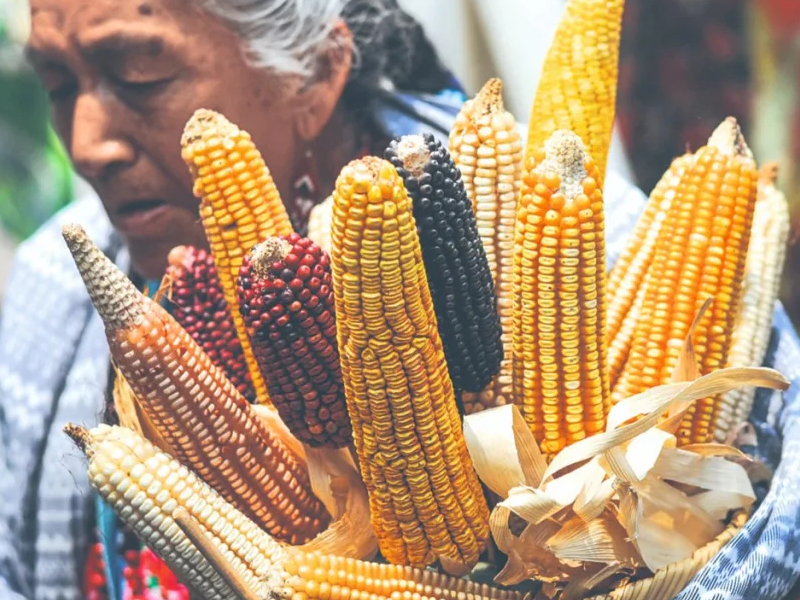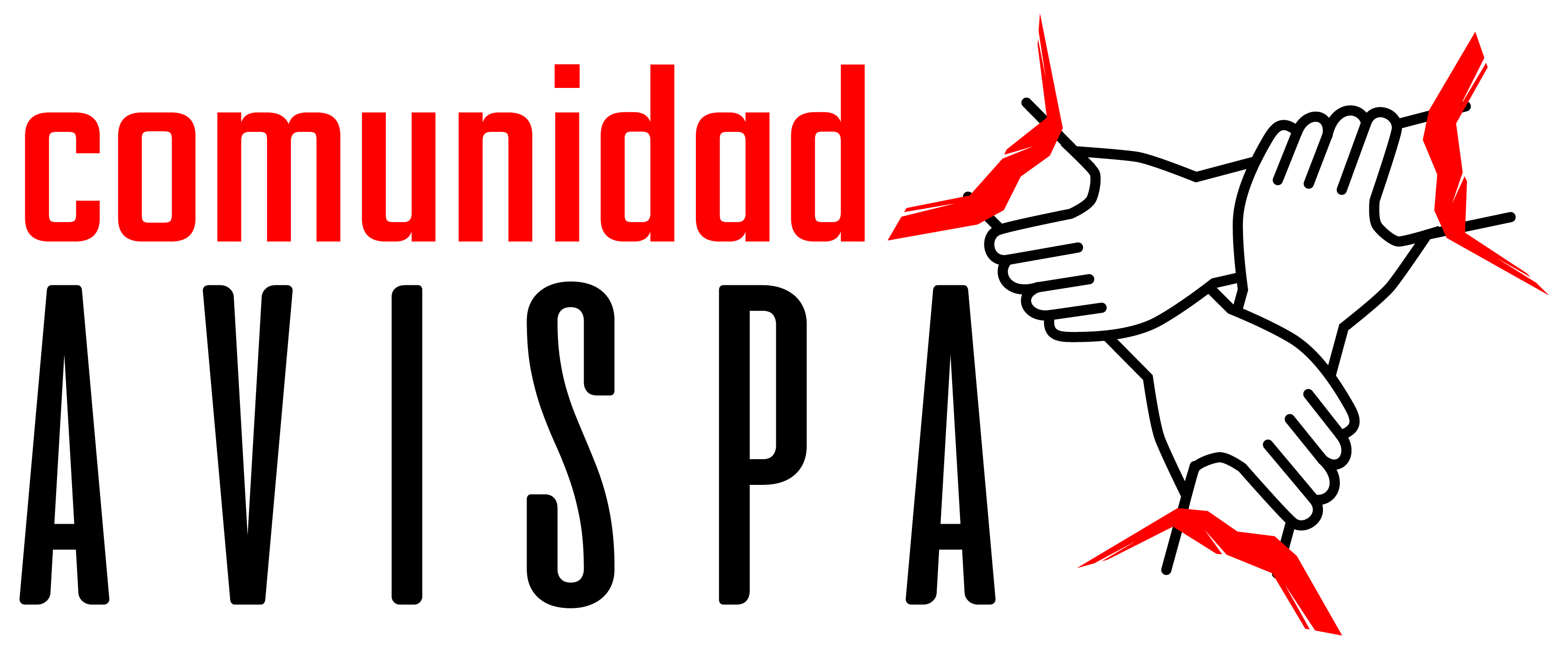Translated by Elizabeth L. T. Moore.
Pictured: Corn producer. Photo: Eduardo Miranda
The Republic of Mexico president, Andrés Manuel López Obrador, published a new order in the Official Journal of the Federation (DOF in its Spanish abbreviation, the main government publication where all rules and regulations must be published) on February 13 that establishes new actions in matters of glyphosate and genetically modified corn. In December 2020, the president passed a first order, now repealed, which decided to gradually eliminate genetically modified corn and the herbicide glyphosate by 2025.
The new publication was a response to the ultimatum the United States gave to Mexico by requesting the scientific basis facing the ban of genetically modified corn and glyphosate, said Malin Jönsson, coordinator of the Fundación Semillas de Vida, in an interview with Avispa Mídia.
The publication was issued one day before the deadline set by the new United States chief agricultural negotiator, Doug McKalip, and the under secretary of agriculture for trade and foreign agricultural affairs, Alexis Taylor, so the Mexican government could explain its decision for the ban.
The recent order maintains the ban on growing genetically modified corn, as well as its use in the dough and tortilla sector.
The previous “does not represent some affectation to commerce nor imports, among other reasons,” maintained the Secretary of the Economy in a press release.
The new order removes the deadline to ban genetically modified corn in animal feed and the food industry. In the release, the Secretary of the Economy explains that “with regard to the use of genetically modified corn for feed and the industry, the deadline has been removed to ban its use, leaving it subject to what exists in supply. Committees will be created with the national and international private sector to achieve an orderly transition.”
Furthermore, the date to stop importing glyphosate and substitute it with agroecological alternatives will be modified from January to March 2024.
In the press release, the Secretary of Economy maintained that “the Federal Commission for the Protection against Sanitary Risks (Cofepris in its Spanish abbreviation) will conduct scientific research surrounding the possible health impacts genetically modified corn has on people. Such studies will be completed with health agencies from other countries.” With this, “Mexico reiterates its commitment to fulfilling the Agreement between the United States of America, the United Mexican States, and Canada, according to which the decisions to preserve organic life should be based on scientific evidence.”
USMCA
The United States government is threatening Mexico with resorting to formal measures associated with the Agreement between the United States of America, the United Mexican States, and Canada (USMCA), previously NAFTA. For the organizations that join the “Sin Maíz no Hay País” campaign, the controversy shows that free trade treaties jeopardize sovereignty when some of the parties are at a disadvantage.
Nevertheless, as Jönsson argues, USMCA contains articles that protect sovereignty, meaning Mexico can ban the use of modern technology products or genetically modified organisms (GMO).

“USMCA does not have an obligation to accept (the U.S. complaints). We can use those arguments we have. There are many studies that are showing the damage they cause to biodiversity, to health, to life,” added Jönsson. He said they could even put a deadline on closing the border to imports.
Not compliant
Various studies on corn flour contaminated with transgenics and glyphosate exist. “The two are being mixed,” Jönsson said.
Even studies by the National Autonomous University of Mexico (UNAM in its Mexican abbreviation) and the Asociación de Consumidores Orgánicos showed discoveries of glyphosate and transgenics in tortillas. Using yellow corn in this food would mean government controls have failed.
“How are we going to eliminate the consumption of contaminated flours that we currently have? How are we actually going to implement the order? How are we going to assure that we’re not consuming it? What has been done to guarantee that we’re not consuming it directly?” asked Malin Jönsson. Seeing as there are several problems, “the order is not compliant,” because it doesn’t resolve them.
The Semillas de Vida researcher reminded that the corn is genetically modified to resist herbicides “go hand-in-hand”. That’s how glyphosate application ends up with other plants. “It controls, but it kills all other life, killing biodiversity.”

The items in the new presidential order recognize the scientific research that warns of the harmful effects of herbicide on the health of human beings, the environment and biological diversity. Furthermore, it recognizes it as a likely carcinogen, as established by the International Agency for Research on Cancer.
The Intersecretary Commission on Genetically Modified Organism Biosecurity, a dependent of the National Council of Science and Technology, published an extensive document on the subject. But, according to Mexican organizations, the United States government nor companies consider these studies valid. “They want to take us down a dead-end street.”
It’s an entirely complicated situation, insisted Jönsson, also because of the interests of large capitals of transnationals that control the glyphosate business and the production of genetically modified corn, like the company Bayer - Monsanto, Syngenta, among others.
“Incompatible realities”
Mexico is a constant center of origin and diversification of corn. It’s the world’s largest living genetic corn shelter. Indigenous villages have been saving, selecting and improving the seeds for some ten thousand years, the researcher highlighted.
Fifty-nine native races are registered, but millions of corn varieties exist as the essence of Mexican food culture, which was domesticated more than seven thousand years ago. In contrast, in the United States, corn is merchandise and supply for animal feed, to make ultra-processed products and to generate agrofuel.
“They’re two different and incompatible realities,” agreed the researcher. “But we come from a neoliberal economic model where the agricultural population has not been supported at all, where genetically modified corn has been allowed in,” she said.
The organizations highlight the self-sufficiency of Mexico in the production of corn it consumes. “That’s why it’s essential to establish concise and transversal public policies its respective proposal, that guarantee that in a fixed amount of time there will be permanent self-sufficiency of non-genetically modified corn for the food supply chain in its group,” she said.
Reaction
On Tuesday, February 14, the United States agriculture secretary highlighted that they are carefully revising the details of the new order “and we intend to work with the USTR to assure that our commitment is based on science and the rules remain firm.”
Fernando Bejarano, of the Pesticidal Action Committee, considers that the agencies and organizations of the Federal Public Administration should complete the corresponding actions with the effect of carrying out the gradual substitution of glyphosate until reaching its ban in March 2024.
He highlighted the eighth article of the 2023 order that speaks about the research protocol group that will join the Federal Commission and the same requests by other countries in a study about the consumption of genetically modified corn and the possible damages to health.
The organizations that join the national campaign convened people to join the proposals, so they can establish laws and rulings that include sanctions.
Currently some 17 million metric tons of genetically modified corn are imported to Mexico, due to the Free Trade Agreement between Canada and the United States of America.


